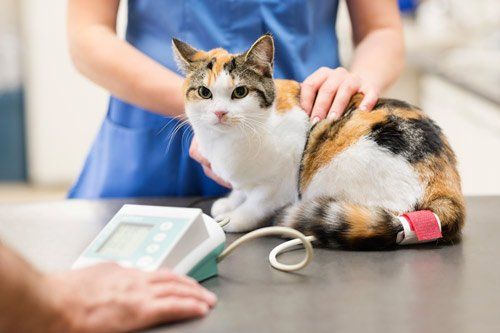
3 Nutrition Tips for Pregnant Cats
- By
- •
- 11 Aug, 2017

If you or your partner were expecting a baby, you would certainly evaluate your diet and make changes based on what was healthiest for a human expectant mother and fetus. If you have a cat that's expecting, you should do the same for her.
Diet and nutrition are important factors in a healthy pregnancy and birth for any mammal. However, a pregnant cat's nutritional needs definitely differ from those of a pregnant human. Take a look at some nutrition tips for cats that can help ensure a healthy pregnancy and birth.
Avoid Calcium Supplements
Some pet owners mistakenly believe that pregnant cats should be given calcium supplements, or that cottage cheese should be added to their diet to increase their calcium levels. It's true that calcium is important to the growth of healthy bones and teeth, just like in humans. But supplementation is usually not recommended.
The reason is that too much calcium in your cat's diet while pregnant can result in eclampsia in cats. This may seem confusing, since eclampsia occurs when cats experience a drop in their blood calcium levels. However, supplementation during pregnancy can suppress production of a hormone that helps cats use their stored calcium.
Your cat's food should contain the appropriate amounts of calcium. In rare cases, a cat may need extra calcium supplements, but unless your veterinarian specifically recommends it, calcium supplementation should be avoided.
Cut Down on the Carbs
In many cases, domestic cats are already fed a diet that's too high in carbohydrates. Unlike humans, cats do not depend on carbohydrates for energy. Their bodies turn fats and protein into energy. Cats have little or no need for carbohydrates in their diet, and in fact have trouble digesting them properly. Your cat does not derive much energy from carbohydrates.
This is especially true when your cat is pregnant. Expectant mothers need plenty of energy—their bodies are working hard even while they're resting. And like human mothers, your cat needs additional calories when pregnant. But those calories should come from proteins and healthy fats, not from carbohydrates. That way, her body will have the energy it needs for a healthy pregnancy.
You may want to switch to a premium brand of cat food that uses fewer carbohydrates and offers more protein. Supplementing with fish oil can give your cat additional healthy fats, including omega-3 fatty acids.
Aim for Maximum Digestibility
The more digestible a food is, the more of it the body absorbs and the less of it is eliminated as waste. Highly digestible foods allow for more calorie and nutrient absorption in a smaller amount of food. This is important when your cat is pregnant.
The kittens inside of your cat's uterus will take up a lot of space, especially toward the end of the pregnancy. This can crowd your cat's stomach and make it hard for her to eat a lot of food at one time, even if she's very hungry. But your cat needs to keep her calorie count up. Finding the most digestible food available ensures that your cat can get the calories and nutrients she needs, even if she can't manage a big meal.
You know that cats can have difficulty digesting carbohydrates, so it's important to make sure that your cat's food has plenty of more easily digestible proteins and fats. But those aren't the only considerations. Moist foods are more digestible than dry foods, and it's easier to absorb nutrients from minimally processed foods than highly processed foods.
Some vets recommend choosing high-quality kitten food for your pregnant cat instead of adult food. Kitten food is easier for a cat's body to process, and it contains all the nutrients that your pregnant cat and her kittens will need throughout the pregnancy, birth and lactation period.
Your veterinarian is your best resource when it comes to determining the best diet for your pregnant cat. They'll know your cat's medical history and nutritional needs. Don't hesitate to ask your local veterinarian for healthy diet advice for your cat.



